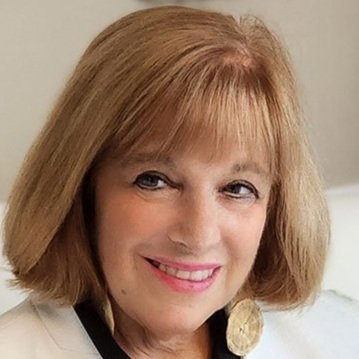Shirley Russak Wachtel is the author of the short story collection Three For A Dollar, the book of poetry, In The Mellow Light, several books for children and the adult novel, A Castle in Brooklyn. She is the daughter of Holocaust survivors and was born and raised in Brooklyn, New York. Shirley holds a doctor of letters degree from Drew University and for the past thirty-five years has taught English literature at Middlesex College in Edison, New Jersey. Her podcast, EXTRAordinary People, features inspiring individuals who have overcome obstacles to make a difference. The mother of three grown sons and grandmother to three precocious granddaughters, she currently resides in East Brunswick, New Jersey, with her husband, Arthur.
X (formerly Twitter): @ShirleyWachtel
Facebook: @shirleyrussakwachtel/
Have you ever experienced Imposter Syndrome?
I confess to experiencing Imposter Syndrome. I believe that because it took me so long to attain my dreams, sometimes I have felt that I am walking through someone else’s life. This feeling pertains to both personal and professional aspects of my life. As a young girl, I yearned one day to be a mother yet knew that I could never hope to have the understanding, the compassion needed, qualities my own mother possessed. Today, I find myself the mother of three grown sons and grandmother to three girls. And I know, finally, that I do possess these qualities.
It took me over thirty years to become an author, even though I always believed that I was a good writer. When my first book, A Castle in Brooklyn, was published by Little A, the feeling was surreal; working with my agent, editor, and publicist seemed as if I was a part of a dream. Ultimately, these feelings of being an imposter faded, and I have learned to accept my roles as a good mother and a successful author. I am proud of both. And I will always remember the struggles I have had because, as I say in the last line of one of my poems, “First, first I was a Brooklyn girl.”
Do you collect anything? If so, what, why, and for how long?
Like many others who love to read, I have been collecting books since college. Although e-books and audiobooks are available, I prefer the weight, the scent, the cover of a real paperback or hardback book. Today, my home office is filled with books, stretching from one end to the other.
I also have a collection of miniature shoes on a shelf in my office. I have about twenty-five of these collectibles. Shoes have a special meaning to me as my mother loved all kinds of shoes and wore high heels until she turned eighty. After she died, I learned that her father, who was killed in the Holocaust, owned a shoe store. Shoes are often used as a metaphor for the notion of our journey through life. Consequently, I have been a collector of shoes (both real and miniature) since my mother passed away in 1999.
What do you worry about?
Even though worry is a useless emotion that yields nothing positive, I admit to worrying. My family is the most precious thing in my life, and I often worry about them. And, when children grow up and leave the house, mothers worry about them more. Living with my husband, I become more attuned to any problems in health, etc. he may have. Are they sick? Are they in danger? Are they unhappy in their careers or family life?
I also worry about the state of the world. As a child of Holocaust survivors, I know all too well the devastation that can result when tyrants are placed in power and rob individuals of their liberty. In some ways, sadly, I see history repeating itself. I worry about it all. And sometimes I worry that I will never stop.
What brings you great joy?
On a personal level, my three granddaughters, ages 12, 8, and 2 bring me the greatest joy. I love having heart to heart talks with the two older girls, helping them with homework, having a “spa day” at home. And nothing brings me more pleasure than seeing the smile on the toddler’s face whenever she sees me. I adore them all.
Professionally, I have a feeling of joy and accomplishment whenever I complete a manuscript and read it over before submission. I am satisfied and proud to have achieved my goal.
Do you speak a second language? Do you think differently in that language? Does it influence your writing?
I speak English and Spanish, a language I learned in school and have taught. But my first language is Yiddish, spoken by my parents. I spoke Yiddish until the age of 5 when I began school and made friends. However, I can’t remember thinking in that language, and as the years have passed, I have forgotten much. Nevertheless, Yiddish does influence my writing as I often include Yiddish phrases in my novels. The spirit of living in a Jewish household pervades my work.
